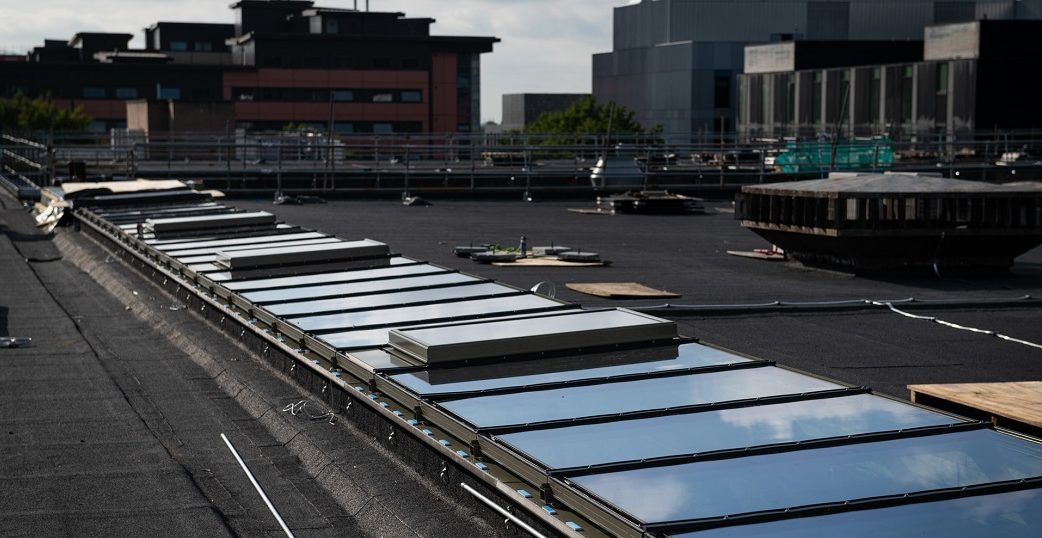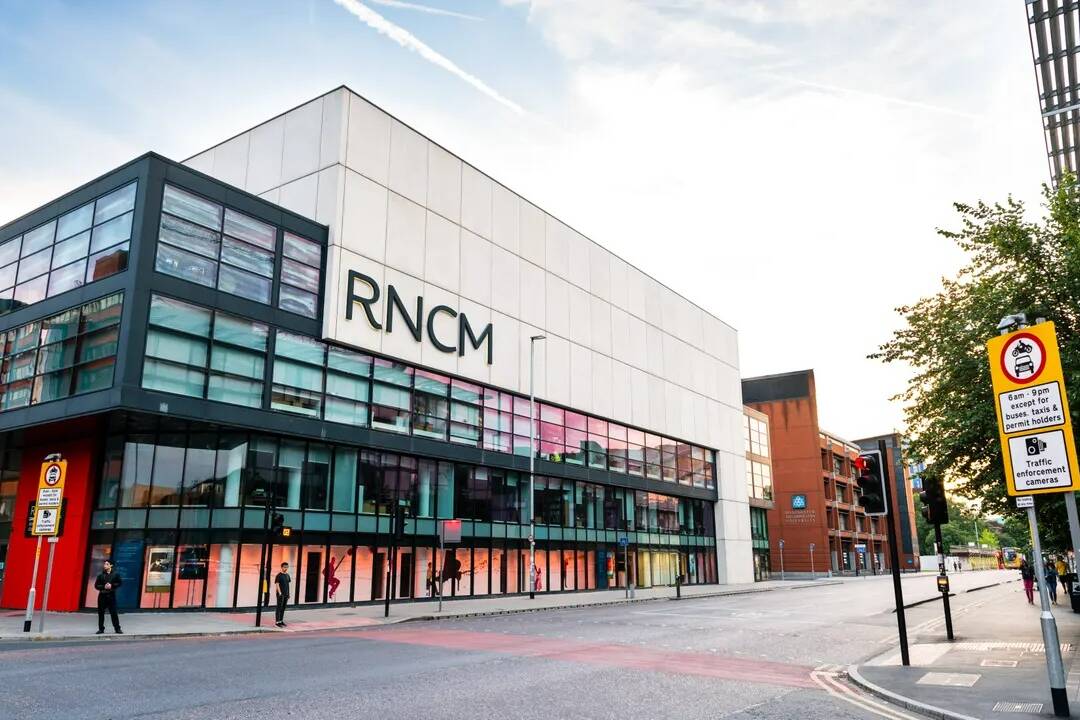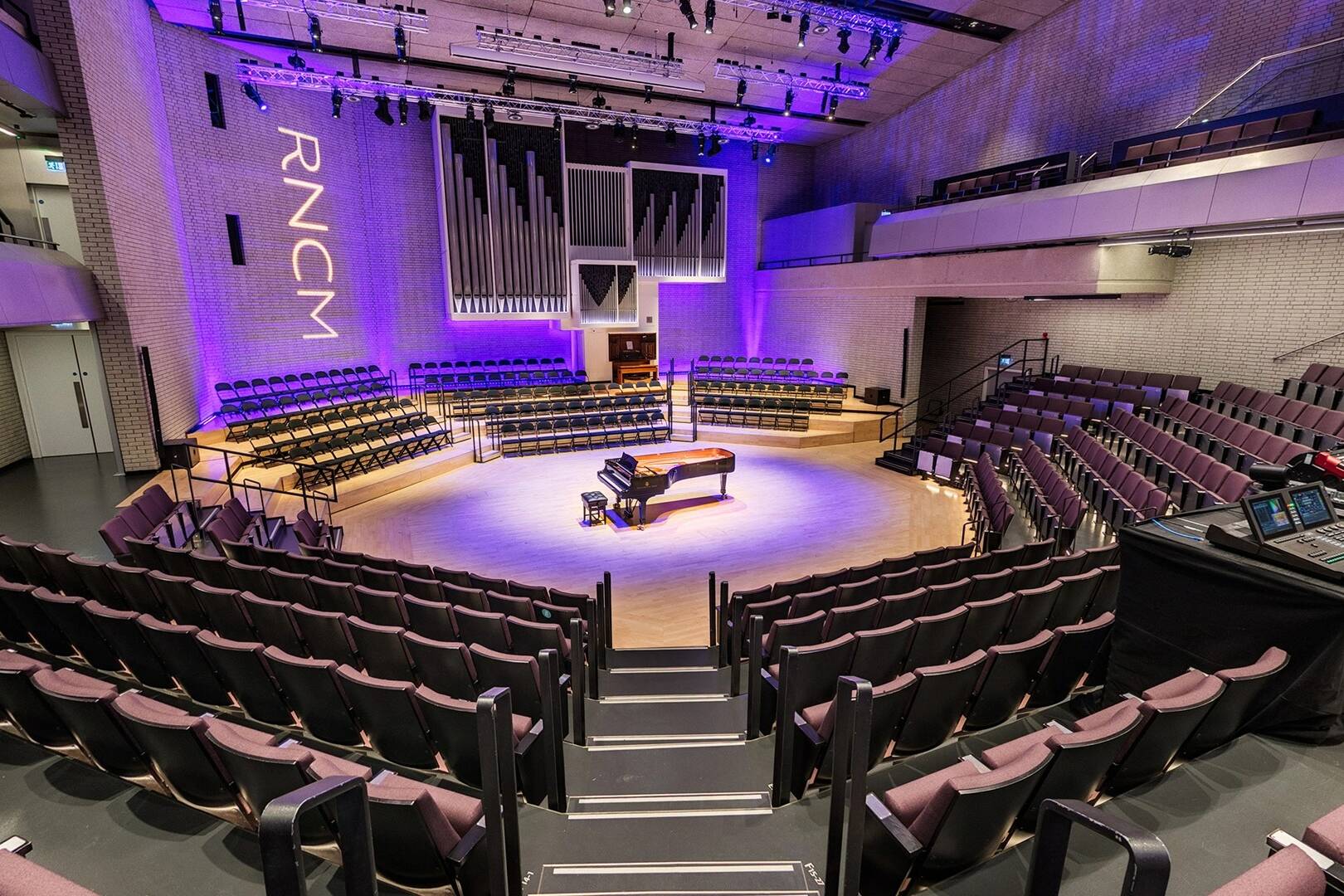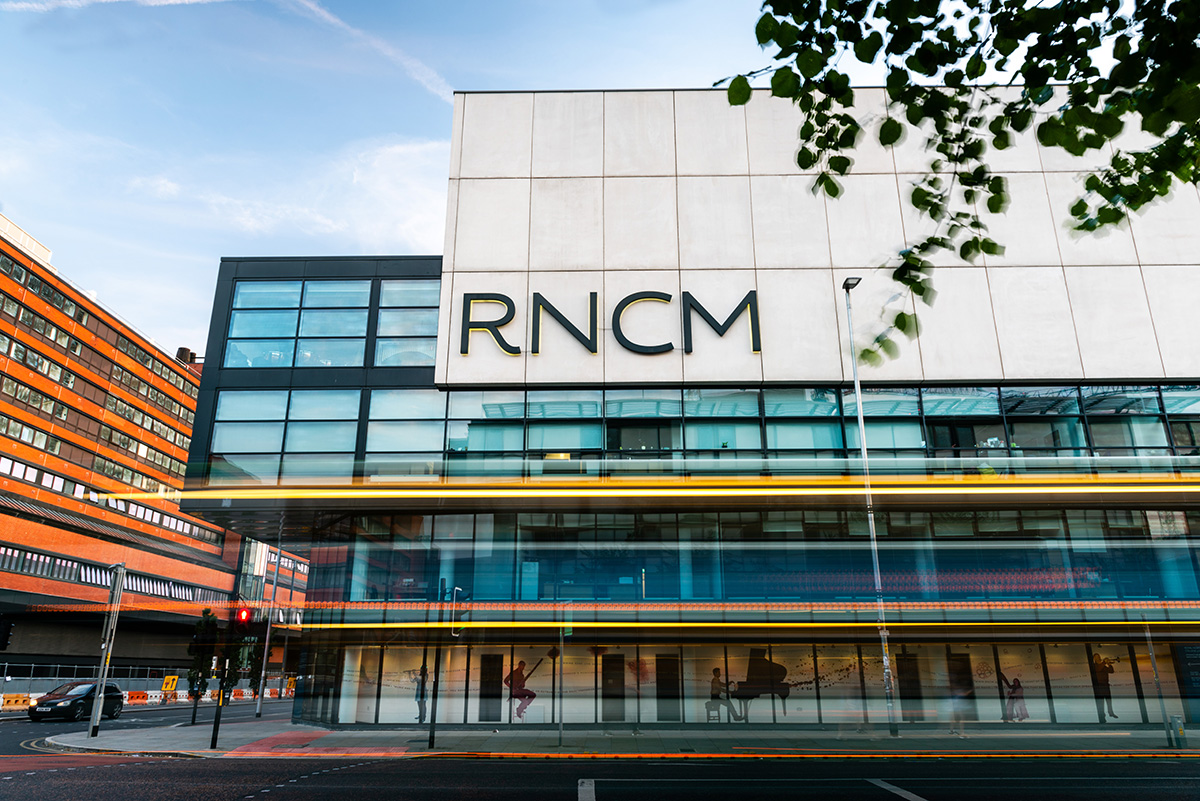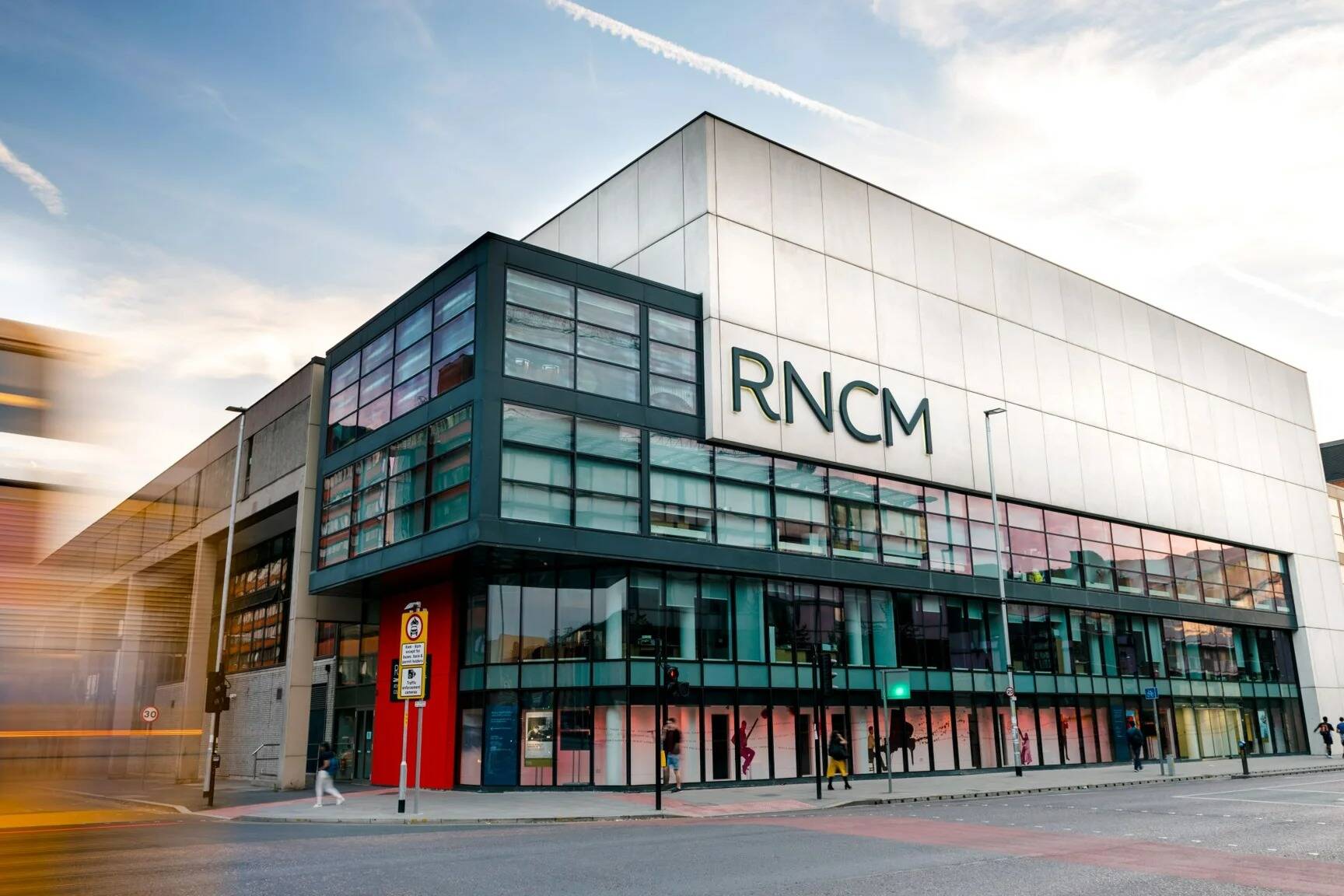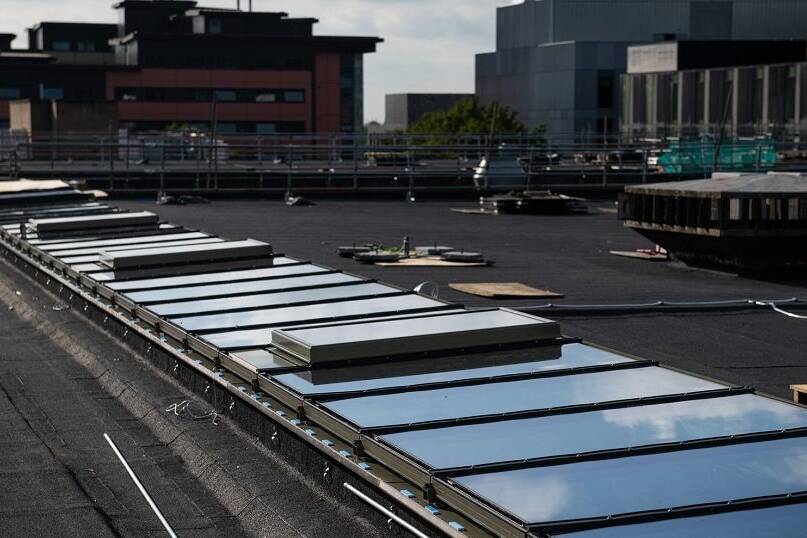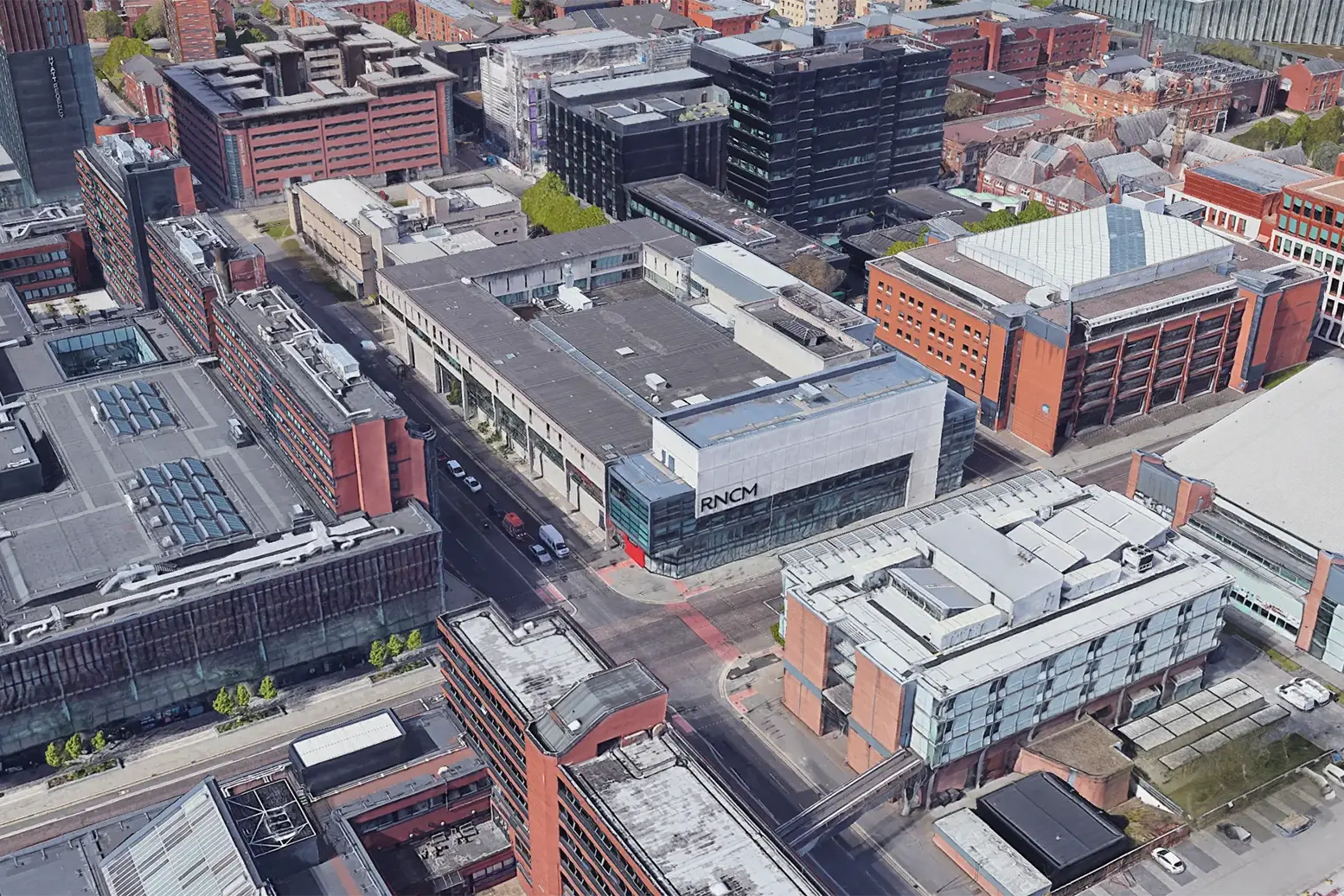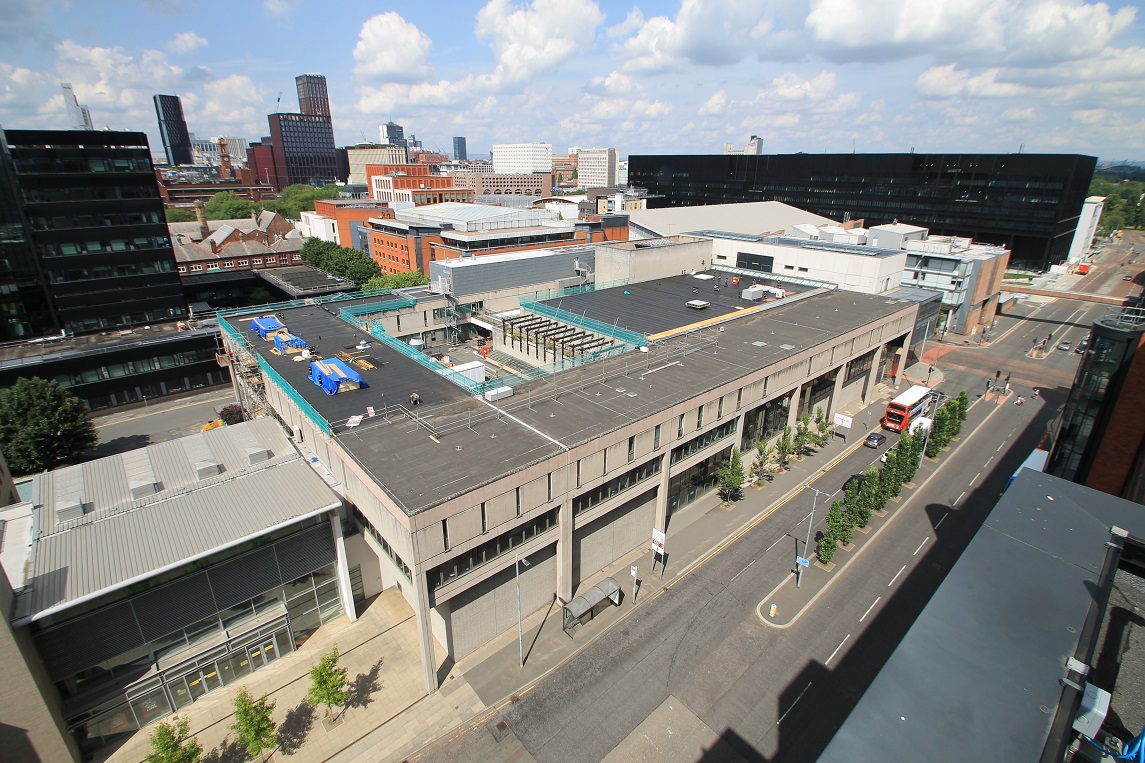01 / Case Study
Royal Northern College of Music
A landmark decarbonisation project at the Royal Northern College of Music (RNCM) – part of the college’s impressive journey towards full heat decarbonisation.
Location / Manchester
Contract Value / £4.5m
Client / Royal Northern College of Music
02 / Overview
Overview of the Royal Northern College of Music – Decarbonisation project
Engineers in the DSSR Manchester office were proud to see the completion of a significant decarbonisation project at the Royal Northern College of Music (RNCM) – part of the college’s impressive journey towards full heat decarbonisation.
As MEP consultant for the design team, DSSR helped to reduce the energy demand for the college in a project which saw the introduction of renewable technologies—including a PV solar array, high-efficiency battery storage, and a hybrid air source heat pump solution—controlled by an integrated Building Energy Management System (BEMS).
These measures combined have led to a dramatic increase in energy efficiency and a significant reduction in the use of grid electricity. The College capitalised on an opportunity to reduce its carbon footprint, with some changes ‘set to lower annual energy usage by 41%’.
The Building Energy Management System is at the centre of this project, enabling the college to efficiently monitor and control the energy it uses to heat and cool its estate in real-time. The air-source heat pumps and chillers are sequenced and controlled by the BEMS in a fully-modulating variable heat output application for stable temperature control.
To fund this stage of their heat decarbonisation project, RNCM successfully applied for £3.4 million of Government funding as part of the Public Sector Decarbonisation Scheme (PSDS) and in partnership with the Greater Manchester Combined Authority (GMCA).
This funding route provides grants to public sector organisations for heat decarbonisation and energy efficiency projects in order to reduce greenhouse gas emissions from public sector buildings. RNCM’s successful application has enabled the college to improve the quality and efficiency of its estate vastly. DSSR is proud to have played a part in its route to full decarbonisation through the design of efficient MEP systems.
Key Project Details
Key elements of this decarbonisation project include:
- the incorporation of air-source heat pump technology
- the installation of a solar PV array to generate electricity
- high-efficiency chiller technology with heat recovery
- a new efficient transformer for the main building
- the development of a new energy metering infrastructure to monitor and verify the effect that the technologies will have around the decarbonisation of the institution.
Solar PV Array
With the installation of a solar PV array, combined with an efficient battery-storage system, RNCM is able to optimise storage and purchase of electricity at off-peak rates. The roof-mounted solar panel array provides RNCM with 144,329KWH, and is supported by a 1MW Tesvolt battery storage system.
Battery Storage
NRG Group, an installation partner of Tesvolt, designed, installed, and commissioned a 1MW battery storage system with a 300kW peak charge and discharge capacity for RNCM.
Tesvolt specialises in developing innovative, sustainable energy storage systems which represent greater environmental friendliness and energy efficiency.
State-of-the-art prismatic lithium battery cells from Samsung SDI are combined with a patented, TÜV-certified Active Battery Optimizer (ABO) smart-cell control system, to ensure superior performance and reliability without compromise.
Air-Source Heat Pumps (ASHP)
An air source heat pump transfers heat from the outside air to water, which can then be used to heat buildings and provide hot water. For the Royal Northern College of Music, ASHP is used as the primary source for heating. When the outside temperature is too low, making the ASHP less efficient, the recently installed high-efficiency gas boilers will be utilised as a backup energy source.
Gas Boilers
The college was previously utilising 12 gas-fired modular boilers, with a total output of 2400KW, to meet the building’s complete heating demand (space heating, air heating, and domestic hot water heating). This requirement is now greatly reduced, allowing the high-efficiency boilers to be utilised only as a backup to the new low-carbon solutions.
The new system utilises only 6 modular boilers, each rated at 196KW, to give a total output of 1176KW, resulting in annual carbon savings of 349 tCO2e.
Chiller Plant
The ageing chiller plant system was replaced with the latest high-efficiency units, coupled with a new heat recovery system in the form of water-to-water heat pump technology. The ‘waste’ heat that is generated from the chiller process is recovered and used to pre-heat the boiler system for the main building.
